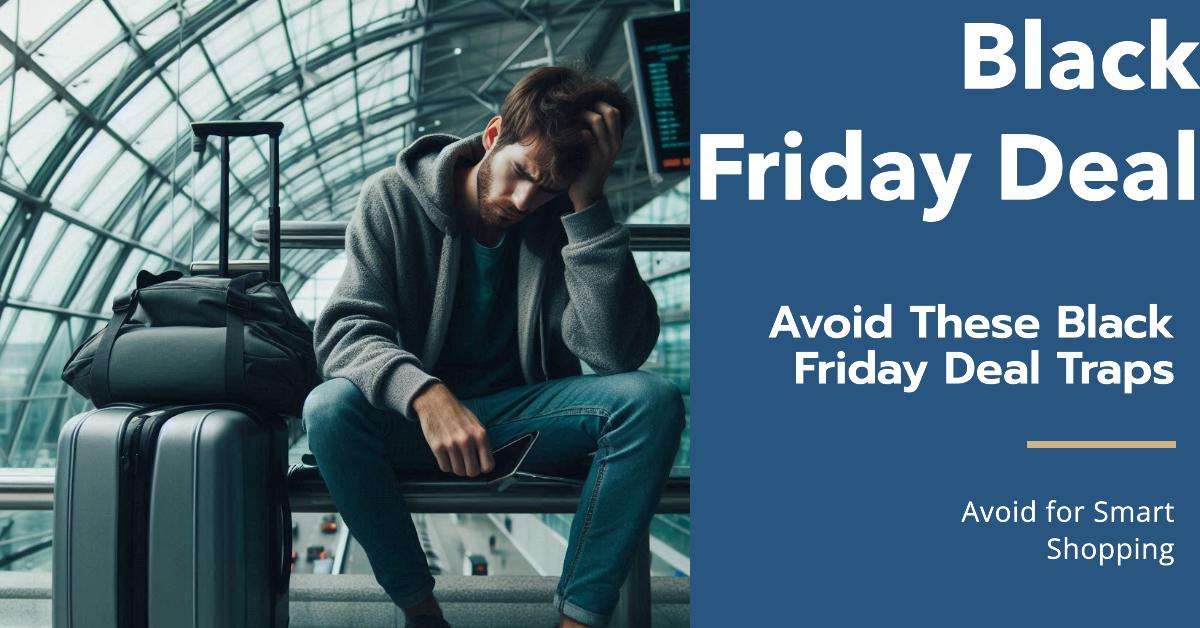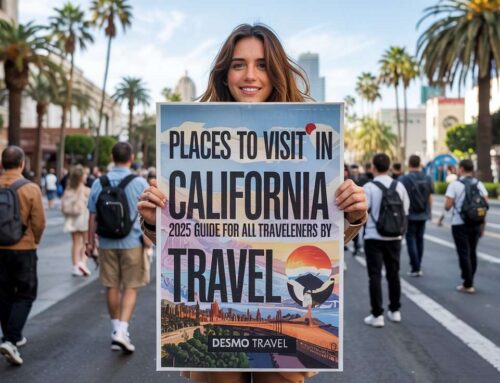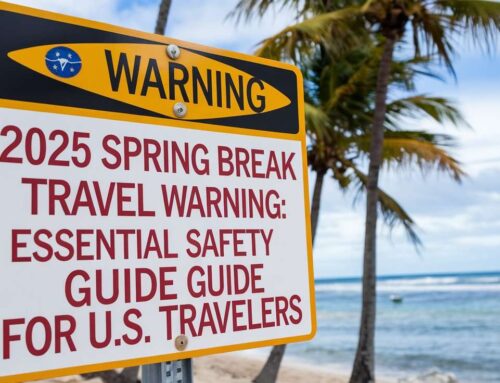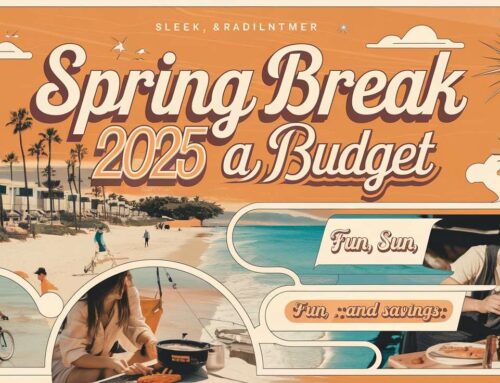Avoid These Black Friday Deal Traps
Contents
- 1 Avoid These Black Friday Deal Traps
- 1.1 1. Fake Travel Deals
- 1.2 2. Phishing Scams
- 1.3 3. Hidden Fees
- 1.4 4. Impulse Buying and Overspending
- 1.5 5. Manipulated Discounts and False Urgency
- 1.6 6. Ignoring Return Policies
- 1.7 Bonus Tip: Partner with Trusted Travel Experts
- 1.8 Notable Company Missteps
- 1.9 Final Thoughts
- 1.10 Q: What are some common black Friday traps to avoid?
- 1.11 Q: How can I avoid online scams during black Friday?
- 1.12 Q: What should I keep in mind about discounts on black Friday?
- 1.13 Q: Is impulse buying really that big of a deal on black Friday?
- 1.14 Q: Can AI help me shop smart on black Friday?
- 1.15 Q: How do I know if I’m really getting a great deal?
- 1.16 Q: Why should I be vigilant about holiday shopping?
- 1.17 Q: What are the best practices for black Friday weekend shopping?
- 1.18 Q: Are there any specific products to avoid buying on black Friday?
Black Friday has become a shopping phenomenon, attracting consumers with promises of unbeatable deals and discounts. However, amidst the excitement, there are numerous traps that smart shoppers should avoid to ensure they truly get the best deal without falling victim to common pitfalls. In this article, we’ll dive into the Black Friday trap, exploring how to navigate through it effectively and wisely as retailers create a shopping frenzy.
1. Fake Travel Deals

Scammers often lure consumers with travel deals that seem too good to be true. If a travel deal appears exceptionally low-priced, it’s essential to conduct thorough research. Check the company’s credibility, read customer reviews, and ensure it’s a legitimate business before proceeding. Sites like TripAdvisor and Trustpilot can offer insights into others’ experiences, and verifying credentials with the Better Business Bureau can emphasise another layer of security for consumers.
2. Phishing Scams

Be wary of phishing emails that mimic legitimate travel companies and may compromise your privacy policy. These emails often prompt you to confirm bookings or update payment information, especially during the holiday season, which can jeopardize your privacy policy. To avoid falling victim, never click on links within unsolicited emails that promise you’re getting a great offer, whether it’s for a product or service. Instead, go directly to the company’s official website to verify any requests that you want to buy. Look for telltale signs of phishing scams, such as generic greetings, spelling errors, or requests for sensitive information.
3. Hidden Fees

Many travel providers may advertise low prices but tack on hidden fees for essentials like baggage, seat selection, or insurance. Always read the fine print and understand what is included in your booking before finalizing your purchase, whether it’s for travel or retail products you want. Checking multiple sites and being aware of five common add-ons can prevent nasty surprises and keep you within budget.
4. Impulse Buying and Overspending

The excitement of Black Friday can lead to impulse buying, especially when faced with limited-time offers that marketers promote heavily. Avoid this trap by setting a budget and sticking to it, which means you need to plan your purchases carefully. Creating a shopping list ahead of time can also help you stay focused. Tracking apps or spreadsheets can assist consumers in monitoring their spending in real-time to prevent overspending during the holiday season.
To avoid overspending traps, consider the following strategies for smart shopping: conduct thorough market research.
- Research and Plan Ahead: Start early by researching potential destinations and creating a wishlist while looking for deals on flights from many retailers that people want to buy. Signing up for newsletters from airlines and travel agencies can provide early access to sales and exclusive offers, so you’re looking for the best deals. Use resources like Google Flights, Kayak, or Skyscanner to compare flight prices across different platforms, which can help you spot genuine deals and track price trends at that moment in time.
- Set a Budget and Be Flexible: It’s almost essential for consumers to stay within their limits while shopping. Determine how much you’re willing to spend and stick to it. Flexibility with travel dates can lead to significant savings, as prices often fluctuate based on demand. Tools like Hopper can help motivate consumers by predicting the best times to book flights and get instant savings.
- Use Price Comparison Tools: Apps like Honey, CamelCamelCamel, or Google Shopping can help you compare prices across platforms. These tools are invaluable for tracking price drops and identifying inflated discounts that retailers may use to make it seem like a better deal. Many of these apps also provide historical price data, helping you determine if something is on sale and truly worth it.
- Timing Your Purchases: Consumers should be aware of the best times to buy, especially around Black Friday and Cyber Monday marketing campaigns. Book early on Black Friday when deals are first released, as popular offers can sell out quickly. Alternatively, consider waiting until “Travel Tuesday” for travel deals, as some providers hold back their best offers until after Cyber Monday. Being strategic with timing can lead to substantial savings.
5. Manipulated Discounts and False Urgency

Retailers may inflate original prices before Black Friday to mean you need to be cautious about discounts that appear more significant. They also create a false sense of urgency with limited-time deals to entice you into quick decisions. Combat this by using price-tracking tools like CamelCamelCamel or Honey, which provide historical price data and help you assess the actual value of a discount.
Tips for Staying Organized:
- Utilize Secure Payment Methods: Opt for secure payment methods like credit cards with fraud protection or PayPal, which provide an extra layer of security and ease when making purchases. Avoid wire transfers or direct bank payments, as these are more difficult to recover if you encounter a scam. Secure methods help safeguard your financial information and offer recourse in case of fraud.
- Stay Organized: Emphasise the importance of keeping track of what you need before shopping. Stay organized by setting up wish lists, tracking spending on a spreadsheet, and using online calendars to mark specific deals. This approach ensures you’re prepared and don’t miss out on genuine offers that might appear at that moment in time. Additionally, setting spending limits on credit cards or using store credit cards can help control impulse buying and ensure you’re looking for the right purchases.
6. Ignoring Return Policies

Ignoring return policies can lead to buyer’s remorse, especially if you think you’re getting something non-refundable or have strict return windows that many retailers often exploit. Always check return policies before making a purchase, particularly on high-value items. Being aware of restocking fees or short return windows can prevent unnecessary hassle if you change your mind.
General Trends and Advice:
- Be Skeptical of Urgency Tactics: Many retailers use these tactics to pressure consumers into buying impulsively, which you should never use as a reason to make a purchase. Retailers frequently create a false sense of urgency to encourage people to buy quickly during the holiday shopping season. Remember, many deals will continue throughout the season, so don’t feel pressured to buy immediately.
- Consider Waiting for Travel Tuesday: For travel deals, waiting until Travel Tuesday can sometimes yield better offers as many retailers release their best deals after Black Friday weekend.
- Environmental Considerations and Sustainable Shopping Tips: Consumers should consider eco-friendly options when shopping during Black Friday and Cyber Monday sales. If sustainability matters to you, consider prioritising quality over quantity and supporting eco-friendly brands during the holiday season, while also looking for deals. By focusing on mindful consumption, you can contribute to positive change while enjoying your Black Friday savings and ensuring you’re buying something worthwhile.
Bonus Tip: Partner with Trusted Travel Experts
Navigating the complexities of Black Friday travel deals can be daunting, but partnering with a reliable travel agency can make the process easier and more secure. By working with trusted travel experts, you can gain access to exclusive deals and avoid common pitfalls. At Desmo Travel, we specialize in helping travelers find genuine, worry-free travel experiences. With our industry knowledge and dedication to customer satisfaction, you can enjoy Black Friday savings with confidence.
Notable Company Missteps
Learning from past mistakes made by brands can help avoid disappointment for consumers: market research is key.
- O2’s 2017 Social Media Marketing Campaign: O2’s Black Friday promotion received minimal engagement, highlighting the importance of understanding your audience and using effective marketing strategies during high-stakes events to ensure you’re getting a great response.
- Knomo’s 2019 Discount Confusion: Consumers often find themselves confused about the store’s pricing during the frantic holiday shopping season. Knomo offered a discount but limited color options, frustrating customers. This example underscores the importance of clear and honest advertising to maintain brand trust.
- ShopBop’s Return Policy Backlash: Don’t take the risk of buying something without understanding the return policy, especially during many sales like Black Friday and Cyber Monday that consumers want to buy. ShopBop’s strict 15-day return policy during Black Friday frustrated shoppers who expected more flexibility in their consumer protection. Brands must consider customer expectations during peak shopping periods to avoid backlash.
Disclaimer
The examples provided in this article are for informational purposes only and are based on publicly available information. They are intended to offer insights and lessons from past Black Friday promotions. We do not intend to harm the reputation of any company or brand. These examples are included solely for educational purposes, and any opinions expressed are purely our own based on online sources.
Final Thoughts
By recognizing these six trapsBy conducting market research, you can avoid falling into common Black Friday pitfalls. Protect your finances by staying informed, setting a budget, and thoroughly researching travel deals. A cautious approach will help you make the most of Black Friday, ensuring you find real value without overspending on new products.
Q: What are some common black Friday traps to avoid?
A: Some of the common black Friday traps include impulse buying, falling for online scams, believing every retailer’s discount is genuine, and buying products you don’t need just because they’re on sale.
Q: How can I avoid online scams during black Friday?
A: To avoid online scams during the holiday shopping season, always double-check the retailer’s website. Look for reviews and make sure it’s a reputable site. Don’t click on suspicious links in your email inbox that promise crazy discounts that many retailers use to motivate consumers to buy!
Q: What should I keep in mind about discounts on black Friday?
A: Always compare prices rationally before making a purchase to ensure you get the best deal through effective market research. Just because a retailer claims to give you a discount doesn’t mean it’s a great deal. Make sure you’re getting the best deal by checking original prices and recent sales history, especially when something is on sale.
Q: Is impulse buying really that big of a deal on black Friday?
A: Absolutely! Retailers design marketing tactics to manipulate your shopping experience. It’s super easy for consumers to fall into the trap of buying things you don’t actually need to buy, especially when many retailers use marketing tactics to make you think you’re getting a bargain. Stick to your list while looking for many sales to ensure you only buy what you need!
Q: Can AI help me shop smart on black Friday?
A: For sure, especially during the holiday shopping season! Here’s to great savings during the holiday season, especially when looking for deals and free shipping! There are AI tools that can track prices, compare discounts, and help consumers find the best deals during Black Friday and Cyber Monday sales that analysts recommend. It takes some of the guesswork out of shopping and helps you avoid traps that retailers use to entice consumers.
Q: How do I know if I’m really getting a great deal?
A: To make sure you’re getting a good deal, research the product’s price history. If the current sale price isn’t significantly lower than what it usually is, then you might not be saving much during the holiday season! Don’t let the retailer’s promotions fool you; always do your market research first.
Q: Why should I be vigilant about holiday shopping?
A: Holiday shopping can be filled with traps that can mess up your personal finance. By being vigilant, you can avoid overspending and stick to your budget despite the flashy Black Friday deals that many retailers promote.
Q: What are the best practices for black Friday weekend shopping?
A: Plan ahead for the holiday shopping season to help consumers navigate the retail industry! Make a list of what you need, set a budget, and stick to it. Don’t forget to check multiple retailers to ensure you’re getting the best discounts while avoiding any traps.
Q: Are there any specific products to avoid buying on black Friday?
A: Yes! You’re getting a great deal! Avoid buying items just because they’re on sale. If you don’t need to buy it, don’t buy it; that’s a crucial principle to follow during shopping frenzies. Stick to essentials and be cautious about flashy promotions that might lead you to spend unnecessarily, thinking you’re getting a bargain.

























